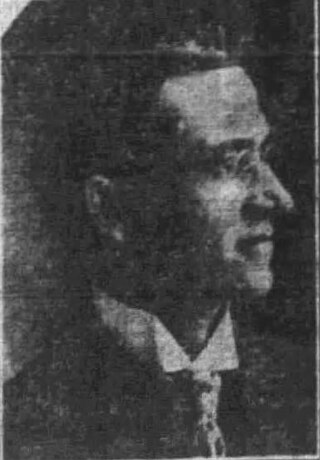
John T. Hughes was a politician from Arizona who served in the 1st Arizona State Legislature. He was also a newspaper man,editing and publishing his father's paper,the Arizona Daily Star,and an attorney,the first native-born Arizonan to be admitted to the Arizona bar. Additionally,he had several mining and real estate interests.
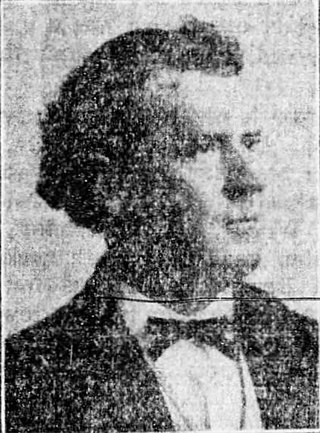
Colonel A. A. Worsley was a politician from Arizona who served in the 1st Arizona State Legislature. Worsley was also an attorney,who practiced in Tucson,Arizona. He was married to Alice J. Worsley.

David Harmon Claridge was a politician from Arizona who served in the Arizona Senate for several terms. He was also a rancher,a farmer,and an Arizona pioneer. In the 1920s he stopped ranching and moved to Phoenix,where he became involved in the real estate business.
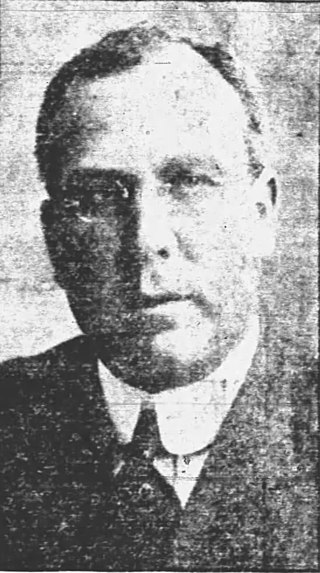
Mose Drachman was a pioneer business and civic leader,as well as politician,in Tucson,Arizona,during the early 1900s. He was involved in numerous interests,including mercantile,real estate,banking,mining,and cattle. He served as the Senior Clerk for the U.S. District Court in Arizona during the term of William H. Sawtelle,served two terms on the Tucson City Council,and five consecutive terms on the Tucson Board of Education,as well as being on both the Tucson and Phoenix chambers of commerce. He also served a single term in the Arizona state senate during the 2nd Arizona State Legislature. Two books were written about his life,Ridin' the Rainbow,and Chicken Every Sunday,the latter being made into a Broadway play,as well as a motion picture of the same name.
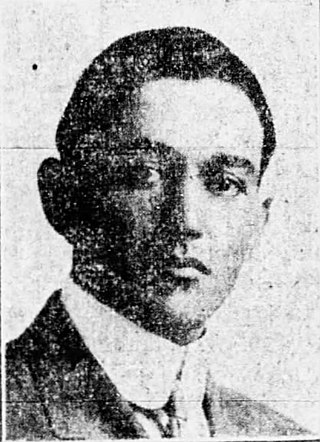
Andrew P. Martin was an Arizona politician who served a single term in the Arizona state senate during the 2nd Arizona State Legislature. He was known as the father of the Arizona National Guard,having organized and led the first company in the territory in 1910. With no formal education in pharmacology,he became a registered pharmacist,and grew his father's single drug store to become the largest drug store chain in Tucson,before selling in 1954. He was also called the father of the University of Arizona College of Pharmacology,having led the drive to establish school. In addition,he saw combat as an artillery soldier during World War I.
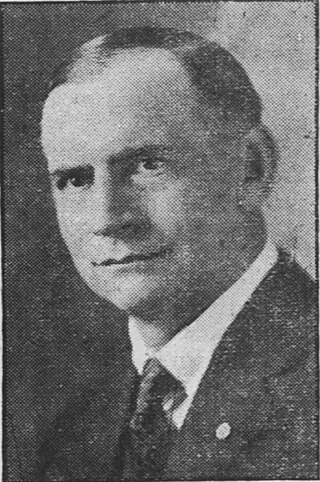
Ernest R. Hall (1880-1959) was an Arizona politician who served a single term in the Arizona State Senate during the 3rd Arizona State Legislature. He ran several other times for the state legislature,mostly for the State Senate,but once for the State House of Representatives. He also ran three times for Arizona Secretary of State,winning in the 1920 election. Other offices he held were justice of the peace and postmaster,both in the Salome,Arizona area. He was a combat veteran of World War I,and was a very successful farmer in Maricopa County for several decades.

Henry Bannister Wilkinson was an American lawyer and politician who served three consecutive terms in the Arizona State Senate from 1918 to 1922,serving as the President of the Senate in his third term,during the 5th Arizona State Legislature. He unsuccessfully ran for several other offices,including in 1933,when Wilkinson lost in the first special election held in Arizona,for Arizona's sole congressional seat. He lost in a landslide to Democrat Isabella Greenway,who garnered 73% of the vote to become the first woman from Arizona to go to Congress. He was instrumental in bringing main line railroad service to Phoenix,Arizona;was one of the founders of what is known today as Banner - University Medical Center Phoenix;was a member of the Arizona State Bar for over fifty years,serving as its president one year;and was very active in the movement to improve the roads in Arizona.

John W. Buchanan (1871–1941) was an American politician from Arizona who served in the states first three legislatures,the first two in the House of Representatives,and the third in the State Senate. During his political career he also served as Pima County Treasurer and as Tucson's City Treasurer.
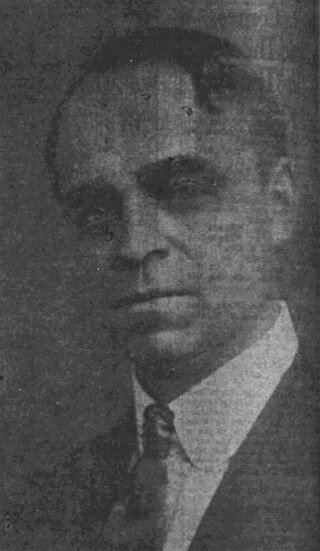
Fred Ormal Goodell (1876-1961) was an Arizona politician who served three consecutive terms in the Arizona State Senate from 1917 through 1922. Very active in the Masons,he served in all of their major posts in Arizona,including being the Grand Master of Masons in Arizona,the Grand Commander of Knights Templar in Arizona,the Grand Master of A. &S. M. of Arizona,and the High Priest of R. A. M. of Arizona. He served as the county comptroller for Pima County for 21 years,from 1935 to 1956.
John Centennial Devine (1876-1940) was an Arizona politician who served two consecutive terms in the Arizona State Senate from 1917 through 1920. An Arizona pioneer,with an mining engineer background,he worked at several mines in Pinal County as either the supervisor or general manager. He worked as an undersheriff both early and late in his career,once killing a man who resisted arrest.
David C. O'Neil was an American politician from Arizona. He served a single term in the Arizona State House of Representatives during the 3rd Arizona State Legislature,and a single term in the Arizona State Senate during the 4th Arizona State Legislature. He served 13 years on the Arizona State Tax Commission,6 of them as chairman. He was appointed in 1934 to serve the last year of an unexpired term,then was re-elected twice,in 1934 and 1940. Early in his career he worked in the hospitality and transportation industries.

Albert Rex Buehman was an American photographer and politician from Arizona. He served a single term in the Arizona House of Representatives during the 3rd Arizona State Legislature,followed by a single term in the Arizona State Senate during the 4th Arizona State Legislature,holding one of the two seats from Pima County. He was unsuccessful in bids for the U. S. House of Representatives in 1948 and for the Mayor of Tucson in 1955. The photography business his father began in 1873 in Tucson was the oldest photography studio in Arizona when it closed in 1956. His daily column in the Arizona Daily Star ran from 1950 through 1954.

Anthony A. Johns was an American politician from Arizona. He served a single term in the Arizona State Senate during the 4th Arizona State Legislature,holding one of the two seats from Yavapai County,as well as serving as President of the Senate. He also held one of the seats from Yavapai County in the Arizona House of Representatives three times,in the 2nd,3rd and 13th Arizona State Legislatures,serving as the Speaker of the House during the 3rd Legislature. He was a long-time resident of Prescott,and one of the largest sheepherders in Yavapai County. Other business interests included mining and construction. Other offices held included a regent for the University of Arizona,chairman of the Arizona Highway Commission,chief of the Prescott Fire Department,president of the Arizona Wool Growers Association,and vice-president of the National Wool Growers Association.
Joseph H. Lines was an American politician from Arizona. He served a single term in the Arizona State Senate during the 5th Arizona State Legislature,holding the single seat from Graham County.
David Morgan was an American politician from Arizona. He served a single term in the Arizona State Senate during the 5th Arizona State Legislature,holding one of the two seats from Yavapai County.

Pat Hayhurst was an American politician from Arizona. He served a single term in the Arizona State Senate during the 6th Arizona State Legislature,holding one of the two seats from Pima County.

Leslie C. Hardy was an American politician from Arizona. He served a single term in the Arizona State Senate during the 7th Arizona State Legislature,holding the seat from Pinal County. He also served as Arizona's first assistant attorney general after it became a state in 1912. During the 1950s he was also responsible for revising the Arizona statutory code.
Claude Smith was an American politician from Arizona. He served a single term in the Arizona State Senate during the 7th Arizona State Legislature,holding one of the two seats from Pima County. He was a veteran of World War I,and served as county attorney in Pima County.

William C. Joyner was an American politician from Arizona. He served a single term in the Arizona State Senate during the 8th Arizona State Legislature,holding one of the two seats from Pima County. He also served as the state game warden,and was responsible for the construction of the Hunt Bass Hatchery House.

Thomas Collins was an American politician from Arizona. He served several terms in the Arizona State Senate,his first stint lasting from the 10th through 12th Arizona State Legislatures,holding one of the two seats from Pima County. He also served from Pima County during the 20th and 22nd Arizona State Legislatures. He also served several terms on the Pima County Board of Supervisors.















